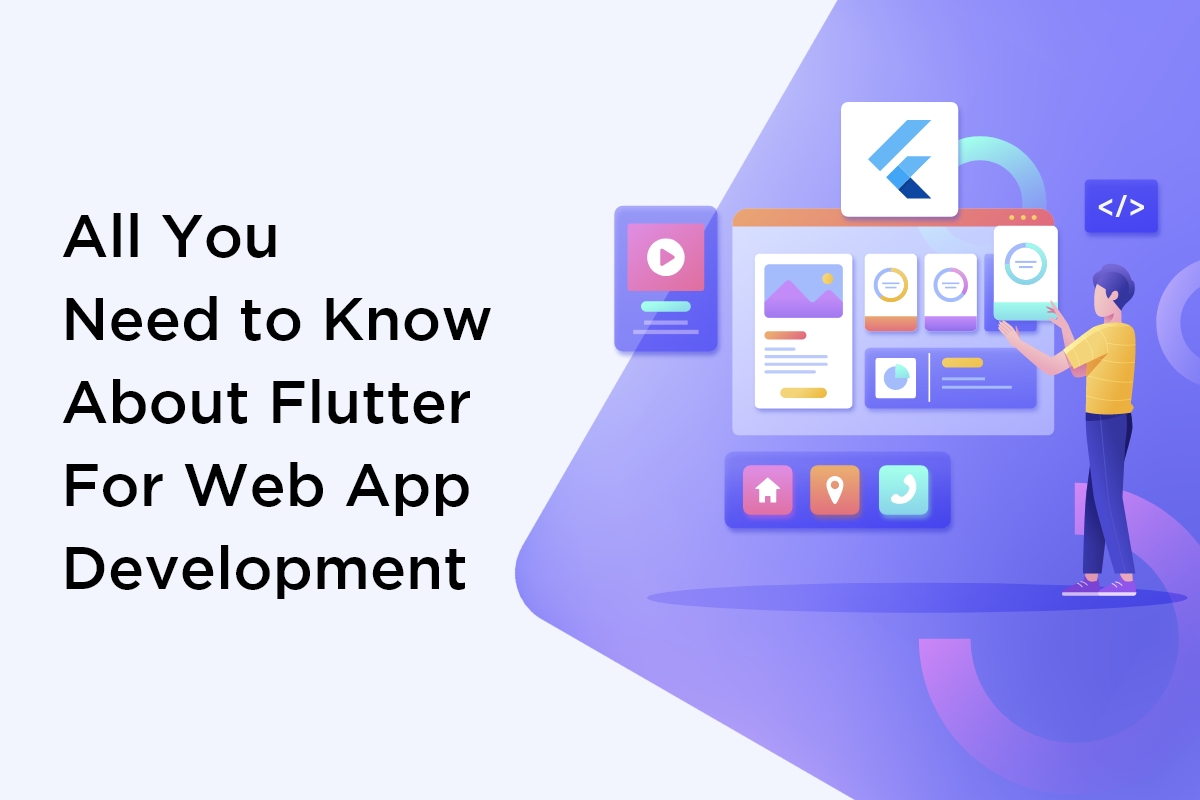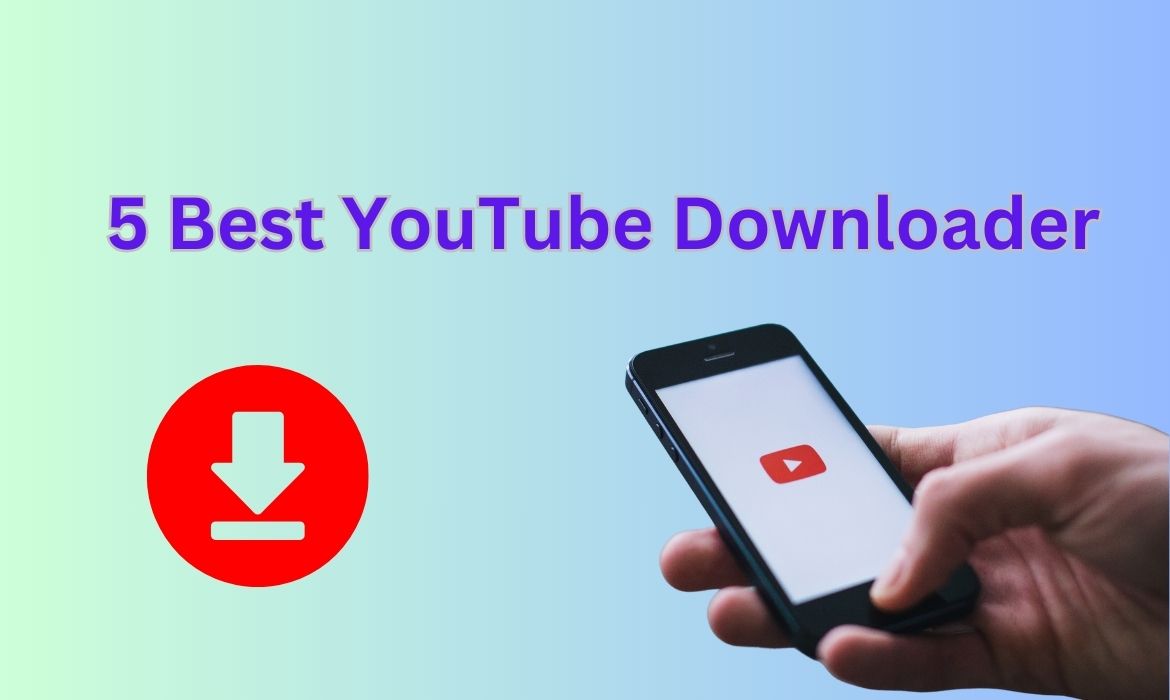Essentially, it is Google’s free and open-source framework that allows developers & a web development company to construct native-like mobile, desktop, and web applications from a single codebase. The flutter web app or mobile apps are powered by Dart, a basic object-oriented programming language. Flutter, like Dart, uses material design and native widgets to provide developers with an amazing UI that feels natural to the platform.
Furthermore, flutter is currently the only framework that has a mobile SDK (software development kit). Developers can use the mobile SDK to generate responsive styles that are cross-platform compatible without relying on JavaScript. Flutter seeks to improve performance by eliminating the requirement for JavaScript.
How Does Flutter For Web Work?
If you want a more in-depth grasp of how flutter works for web development, you should also discover how flutter works for mobile apps. When it comes time to deploy mobile apps for iOS and Android, Flutter converts them into native code. Flutter performs similar functions for the web. It generates native code for your web applications such as HTML, CSS, and JavaScript.
The Flutter framework is the greatest solution for single-page web apps, but you can also construct multi-page web apps with the help of a firm providing mobile app development services. This is doable, however, keep in mind that after the flutter converter converts the web app to native code, there will only be one HTML file, index.html.
Why Should You Use Flutter for Your Next Web Development Project?
When it comes to web app development, there are many options to select from, so why should you limit yourself to Flutter?
Discover the advantages that Google’s open-source framework flutter can provide to your web development project.
-
Both mobile and web developers uses the same codebase
If you want to design an app that works on both mobile and web, Flutter is an excellent solution. You may use flutter to construct both mobile and web apps that share a common codebase. The only thing developers or a web development company have to worry about is creating responsive user interfaces. This is due to the fact that mobile apps and web apps have various screen sizes and resolutions. Similarly, Flutter is a driving force in such events by providing developers with platform check capabilities, which lets them observe how their app operates on various screen sizes, such as mobile and desktop devices.
-
Reusing Code from an Existing Mobile App
Flutter is also a good solution if your company already has a mobile app and wants to build a web app to expand its web presence. You may speed up the construction of the web application while lowering the cost of web app development by utilizing the backend functionality and user interface parts of the existing mobile app. As a result, you don’t have to include every feature of the mobile app in the web version.
-
Flutter’s Hot Reload feature allows for faster development speed
Flutter’s hot reload capability benefits, developers, by making it easier to create UI and other features for the flutter web app. The hot reload feature operates by injecting the source code file into the dart virtual machine (VM), which then translates the source code to native code.
-
A Vast Collection of Customised Widgets
The flutter’s huge array of customizable widgets makes it even more powerful. Additionally, all of its widgets are customizable, allowing firms providing mobile app development services to easily match the design needs of their online apps. By combining Google’s material design with flutter’s widgets, developers can offer their users a more appealing, gorgeous, and fantastic user experience.
What are the Potential Consequences of Flutter?
There is nothing flawless in the world, and the same can be said of the flutter. We’ve listed a handful of the flutter framework’s potential drawbacks below:
-
Problems with Performance
Google first released the flutter framework in May 2017. This indicates that because flutter is still a young framework, its performance isn’t as good as Ionic, React Native, or Xamarin.
-
Inability to Examine Elements
Because all of the flutter elements are present on the canvas, this means that only one element contains all of your web apps. As a result, developers are unable to view the pieces of the flutter web app.
-
Flutter is not searched engine friendly
Regardless of the size of your company, SEO is critical for reaching its target audience, no matter how large or little. Flutter online is not SEO-friendly, which implies that developing a flutter web app can harm your marketing effort.
-
Routing remains a source of concern with Flutter
Routing is one of the most important components of a web application and the framework would not function normally without it.
When Should You Use Flutter for Web App Development Projects?
We’ve given a few examples of when adopting the framework proved to be the best option and produced the best outcomes:
- When you already have a mobile application built using the Flutter framework but want to increase your business’s reach by developing a web application as well.
- Your company has not yet gone online and you’re seeking for a solution to create both a mobile app and a web app for it at the lowest possible cost and in the shortest amount of time. In this case, flutter development services have proven to be the best option for you.
- When you want the interactive component of your company mobile application to be accessible via a web browser without investing a lot of development expenses.
Conclusion
Flutter has many advantages for both developers and business owners, but it also has limitations that should not be overlooked. You now have the option of considering flutter web app development or moving on to another framework.
If you still have questions about flutter web app development, you can get in touch with a web development company.
Author Bio:
Arjun Solanki is a Business Growth Strategist at a Leading Software Development Company. He has experience in developing and executing digital strategies for large global brands in a variety of business verticals. Apart from working on a long-lasting relationship with customers and boosting business revenue, he is also interested in sharing my knowledge on various technologies and their influence on businesses through effective blog posts and article writing.










